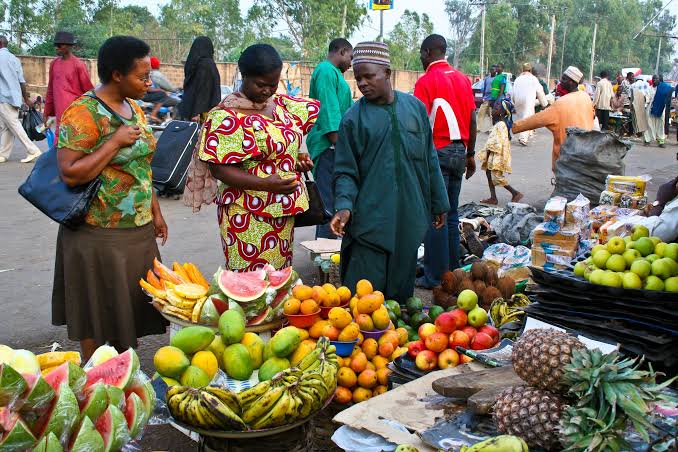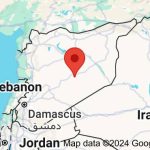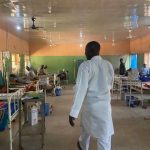BY AISHA YUSUF WAZIRI
Insecurity in Nigeria manifests in various forms, including terrorism, banditry, communal clashes, and kidnappings.
The northeastern region has endured over a decade of violence from Boko Haram and its splinter group, the Islamic State in West Africa Province (ISWAP), devastating communities and displacing millions.
In the northwest, armed bandits raid villages, loot properties, and abduct residents for ransom. Other parts of the country are not spared, with herders-farmers clashes, oil theft, and militant activities creating additional layers of unrest.
This widespread insecurity has become a national emergency, disrupting nearly every aspect of life.The impact on education has been catastrophic, particularly in the north.
Frequent attacks on schools have led to a rise in the number of out-of-school children, now estimated at over 20 million by UNICEF. High-profile abductions, such as those of the Chibok and Dapchi schoolgirls, have instilled fear among parents and communities, discouraging them from sending children to school.
This disruption in education not only hampers individual potential but also undermines the country’s ability to build a skilled and knowledgeable workforce.Economically, insecurity has drained Nigeria’s resources and stifled development.
Farmers in conflict-affected areas have abandoned their lands, leading to reduced agricultural output and worsening food insecurity. Businesses in volatile regions are forced to shut down or relocate due to extortion, theft, and destruction, while the tourism sector struggles with a reputation of instability.
Furthermore, the government spends billions of naira annually on security operations, diverting funds that could have been invested in healthcare, education, and infrastructure.The human and psychological toll of insecurity is immense.
Millions of Nigerians live in internally displaced persons (IDP) camps, where access to basic necessities such as clean water, healthcare, and sanitation is limited.
Many survivors of violence, especially women and children, suffer from trauma and mental health issues, with little access to professional support.
This ongoing psychological damage has long-term implications for societal stability, potentially perpetuating cycles of violence.Insecurity has also exacerbated ethnic and religious tensions, weakening efforts to foster national unity.
The government’s perceived inability to address specific forms of violence in various regions has fueled resentment among ethnic and regional groups, deepening divisions and mistrust.
For instance, the persistence of banditry in the northwest or terrorism in the northeast is often interpreted as evidence of bias or incompetence, further polarizing the country.
Addressing Nigeria’s insecurity requires a multi-faceted approach. The government must prioritize modernizing its security forces with better training, equipment, and intelligence capabilities.
Beyond military action, socioeconomic reforms are essential to address root causes such as poverty, unemployment, and illiteracy.
Community engagement and dialogue can foster trust and enable conflict resolution at the grassroots level, while justice and accountability must be enforced to restore public confidence in the rule of law.
Insecurity poses a grave threat to Nigeria’s development, undermining progress in education, the economy, and social cohesion.
Without comprehensive and sustained efforts to tackle this crisis, the country risks deepening its challenges and losing its potential for growth and stability.
A coordinated and holistic strategy that combines security measures with developmental reforms is the only path forward for Nigeria to achieve peace and sustainable development.
Food Insecurity in Northern Nigeria: A Growing Crisis Food insecurity has become a pressing challenge in northern Nigeria, exacerbated by a combination of conflict, climate change, and economic instability.
Millions of people across the region face hunger daily, with vulnerable groups such as children, pregnant women, and the elderly bearing the brunt of the crisis.
As this issue persists, it threatens not only the health and livelihoods of the population but also the broader development and stability of the region.
Conflict remains one of the primary drivers of food insecurity in northern Nigeria. Ongoing violence by Boko Haram and armed bandits has displaced millions of farmers, forcing them to abandon their lands.
The northeastern states of Borno, Adamawa, and Yobe have been particularly hard-hit, with agricultural activities severely disrupted. Insecurity has made it nearly impossible for farmers to plant, harvest, or transport their produce, leading to a significant drop in food production and availability.
Climate change further compounds the problem, with erratic rainfall patterns, desertification, and prolonged droughts affecting agricultural output.
Northern Nigeria, already prone to environmental challenges, has experienced worsening conditions in recent years.
Communities that rely on subsistence farming and pastoralism find it increasingly difficult to sustain themselves as crops fail and grazing lands diminish.
The competition for shrinking resources has also intensified herders-farmers clashes, deepening the crisis.Economic instability and poverty exacerbate food insecurity in the region.
Rising inflation, especially in food prices, has made basic commodities unaffordable for many families.
According to recent reports, staples such as rice, maize, and millet have doubled in price over the past few years.
With limited purchasing power, households are forced to reduce their food intake, often skipping meals or relying on less nutritious options, which leads to malnutrition, especially among children.
The impact of food insecurity on health is devastating. Malnutrition rates are alarmingly high in northern Nigeria, particularly among children under five. UNICEF estimates that over two million children in the region suffer from severe acute malnutrition annually, with many at risk of death without timely intervention.
The lack of proper nutrition also affects pregnant women, leading to complications during childbirth and poor health outcomes for both mothers and babies.Efforts to address food insecurity in northern Nigeria have been hindered by several challenges.
Humanitarian organizations, while active in the region, face difficulties in accessing conflict-affected areas due to insecurity.
Government initiatives, such as food distribution programs, often fail to reach the most vulnerable due to logistical issues and corruption. Furthermore, the scale of the crisis requires long-term solutions, including investments in agriculture, infrastructure, and climate adaptation strategies.
Addressing food insecurity in northern Nigeria requires a comprehensive approach. Strengthening security to allow farmers to return to their lands is crucial.
Investments in agricultural technology, irrigation systems, and climate-resilient crops can help boost productivity. Social protection programs, such as conditional cash transfers and subsidized food distribution, can provide immediate relief to struggling families.
Collaboration between the government, international organizations, and local communities is essential to create sustainable solutions.
Food insecurity in northern Nigeria is a multifaceted crisis that demands urgent action. The consequences of inaction are dire, with millions at risk of hunger, malnutrition, and death.
By addressing the root causes of the crisis and implementing targeted interventions, Nigeria can work towards ensuring food security for its citizens, laying the foundation for a healthier and more prosperous future.
AISHA YUSUF WAZIRI IS A 300 LEVEL STUDENT FROM MASS COMMUNICATION DEPARTMENT BORNO STATE UNIVERSITY, BORNO STATE.












